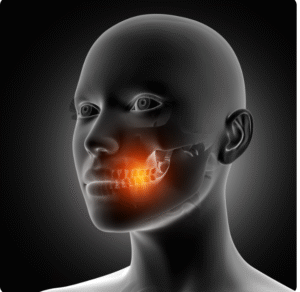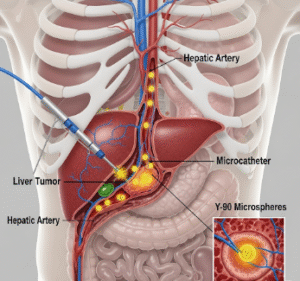Overview
Lethargy is a state of abnormal tiredness, fatigue, or lack of energy, often accompanied by decreased motivation, drowsiness, and slowed physical or mental activity. It is more than ordinary tiredness and may indicate underlying medical, neurological, or psychological conditions.
In Korea, hospitals and clinics provide comprehensive evaluation for lethargy, including blood tests, neurological assessments, and imaging studies to determine the root cause. Early identification allows for effective treatment, management of underlying conditions, and prevention of complications.
Key Facts
- ➔ Lethargy is characterized by low energy, sluggishness, and drowsiness, which can affect daily activities.
- ➔ It may result from medical illnesses, infections, metabolic imbalances, or mental health disorders.
- ➔ Symptoms can range from mild fatigue to extreme unresponsiveness.
- ➔ Persistent lethargy is a warning sign that requires thorough evaluation.
- ➔ Treatment depends on identifying the underlying cause, which may involve medications, lifestyle changes, or psychological support.
What is Lethargy?
Lethargy is a clinical symptom rather than a disease itself. It represents a state of reduced physical and mental energy, often described as fatigue, drowsiness, or sluggishness.
- ➔ Mild lethargy: Slight tiredness or low motivation that may improve with rest.
- ➔ Moderate lethargy: Noticeable fatigue affecting daily activities and concentration.
- ➔ Severe lethargy: Extreme drowsiness, reduced responsiveness, or difficulty staying awake.
- ➔ Clinical importance: Lethargy can indicate serious systemic illnesses, neurological disorders, or psychological conditions, and should not be ignored if persistent.
What Symptoms Are Related To
Lethargy may occur alongside other symptoms depending on its cause:
- ➔ Persistent fatigue and weakness
- ➔ Difficulty concentrating or confusion
- ➔ Drowsiness or excessive sleepiness
- ➔ Low motivation and lack of interest in daily activities
- ➔ Dizziness or lightheadedness
- ➔ Headache or body aches
- ➔ Mood changes, irritability, or depression
- ➔ Fever, nausea, or vomiting if associated with infections or metabolic disorders
Recognizing these associated symptoms helps clinicians identify the underlying cause and guide treatment.
What Causes / Possible Causes
Lethargy can result from numerous conditions, including:
- ➔ Infections: Viral or bacterial infections such as influenza, pneumonia, or sepsis.
- ➔ Metabolic disorders: Diabetes, hypothyroidism, electrolyte imbalances, or kidney/liver disease.
- ➔ Neurological conditions: Stroke, brain injury, or neurodegenerative diseases.
- ➔ Cardiovascular problems: Heart failure or arrhythmias reducing oxygen delivery.
- ➔ Psychological causes: Depression, anxiety, chronic stress, or sleep disorders.
- ➔ Medications or substances: Sedatives, antihistamines, alcohol, or recreational drugs.
- ➔ Nutritional deficiencies: Lack of iron, vitamin B12, or other essential nutrients.
Identifying the cause is critical to determine whether lethargy is a benign or life-threatening condition.
When Should I See My Doctor
Seek medical evaluation if lethargy is:
- ➔ Persistent or worsening over days or weeks
- ➔ Accompanied by confusion, disorientation, or difficulty staying awake
- ➔ Associated with chest pain, shortness of breath, or severe headache
- ➔ Paired with fever, nausea, or vomiting
- ➔ Causing inability to perform daily activities
- ➔ Occurring in individuals with chronic medical conditions like diabetes, heart disease, or thyroid disorders
Early consultation can help identify serious underlying illnesses and initiate appropriate treatment.
Care and Treatment
Treatment for lethargy depends on the underlying cause:
- ➔ Infections: Antibiotics, antiviral medications, or supportive care including hydration and rest.
- ➔ Metabolic or endocrine disorders: Management of diabetes, thyroid replacement therapy, or correction of electrolyte imbalances.
- ➔ Neurological conditions: Targeted interventions such as rehabilitation, medications, or surgery if needed.
- ➔ Cardiovascular problems: Medications, lifestyle adjustments, or surgical interventions.
- ➔ Psychological causes: Counseling, therapy, stress management, or medications for depression and anxiety.
- ➔ Lifestyle adjustments: Adequate sleep, balanced diet, regular exercise, and avoidance of alcohol or sedatives.
Proper treatment can restore energy levels, improve mental clarity, and prevent complications.
Treatment Options in Korea
Korean hospitals provide comprehensive care for lethargy:
- ➔ Laboratory evaluation: Blood tests for infections, metabolic disorders, nutritional deficiencies, and thyroid function.
- ➔ Neurological assessment: MRI, CT scan, or EEG for neurological causes.
- ➔ Cardiology evaluation: ECG and echocardiography for cardiovascular contributions.
- ➔ Mental health support: Psychiatric consultations, therapy, and medications for mood disorders or chronic stress.
- ➔ Rehabilitation programs: Lifestyle and occupational therapy to improve energy and functional capacity.
- ➔ Multidisciplinary approach: Collaboration between internists, neurologists, psychiatrists, and dietitians to provide holistic care.
Leading hospitals such as Seoul National University Hospital, Asan Medical Center, and Samsung Medical Center offer personalized treatment plans that address both the symptom of lethargy and its underlying causes.
In Summary: Lethargy is a serious symptom that may signal infections, metabolic imbalances, neurological disorders, cardiovascular problems, or psychological conditions. Timely evaluation, accurate diagnosis, and advanced treatment in Korea can restore energy, improve quality of life, and prevent serious complications.
- ➔ Key Takeaway: Persistent lethargy should not be ignored, especially when accompanied by other concerning symptoms.
- ➔ Action Point: Seek a comprehensive medical evaluation to identify and treat the underlying cause.













